Colorectal Cancer Screening
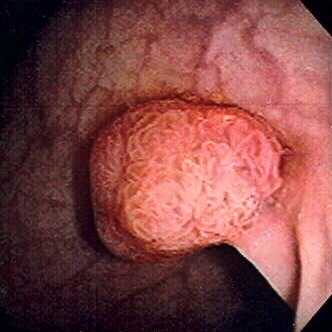
Overview Colorectal cancer (CRC) Risk factors Screening Rationale Colorectal polyps Benefits of screening Colorectal cancer is generally a preventable cancer when proper screening is performed. Screening: Strategies for Screening Stool-based tests Direct visualization tests Colorectal Cancer Screening for Average-Risk Individuals For an average-risk individual, screening is initiated at 45 years of age. Colorectal Cancer Screening […]
Large Bowel Obstruction
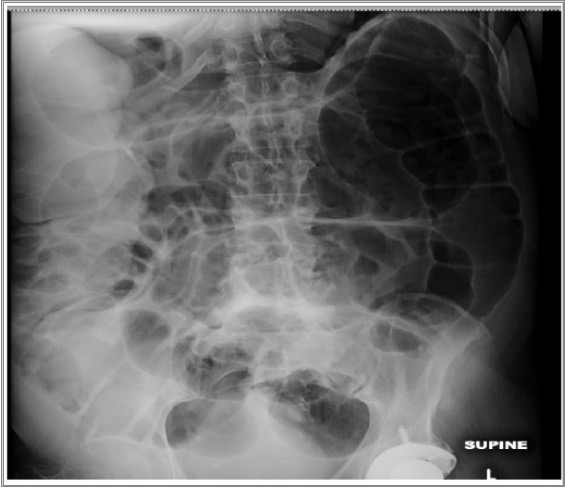
Overview Definition A large bowel obstruction (LBO) is an interruption in the normal passage of bowel contents through the colon and rectum. Epidemiology Etiology Pathophysiology Pathogenesis Pathophysiology for specific etiologies Clinical Presentation Acute obstruction symptoms Chronic obstruction syndrome Physical exam Diagnosis Relevant history Laboratory studies Imaging Colonoscopy or sigmoidoscopy Management Initial supportive management Mechanical obstruction […]
Appendicitis

Overview Definition Appendicitis is the inflammation of the vermiform appendix. Epidemiology Etiology Pathophysiology and Clinical Presentation Pathophysiology Time course Early: Late: Perforation: Clinical presentation Classic: Atypical: Anatomic factors: Diagnosis History Physical exam General: Abdominal exam: Rectal exam: Pelvic exam: Laboratory studies Alvarado score Table: Alvarado score Symptoms Migratory pain in the right iliac fossa 1 […]
Dysphagia
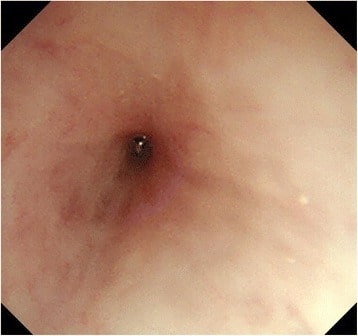
Overview Definition Dysphagia is a condition in which there is a disruption of the swallowing process, typically interfering with the ability to eat and drink. Normal physiology Swallowing consists of 3 phases: Classification There are 2 categories of dysphagia: Oropharyngeal Dysphagia Epidemiology Etiology Clinical presentation Diagnosis Management Management is guided by the diagnostic workup, and […]
Small Bowel Obstruction
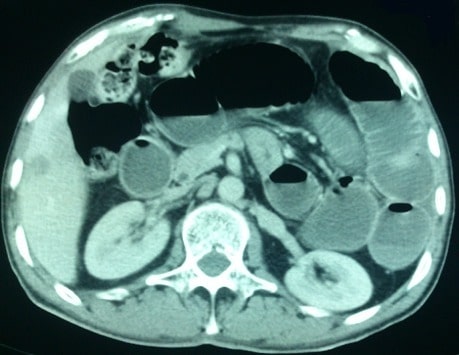
Overview Definition Small bowel obstruction (SBO) is the interruption of the flow of intraluminal contents through the small bowel (duodenum, jejunum, or ileum). Epidemiology Etiology Mnemonics Pathophysiology Classification Pathophysiology Clinical Presentation Symptoms Physical examination Diagnosis History Laboratory tests Imaging studies Management and Prognosis Medical management Surgery Prognosis Differential Diagnosis References
Hereditary Hemochromatosis
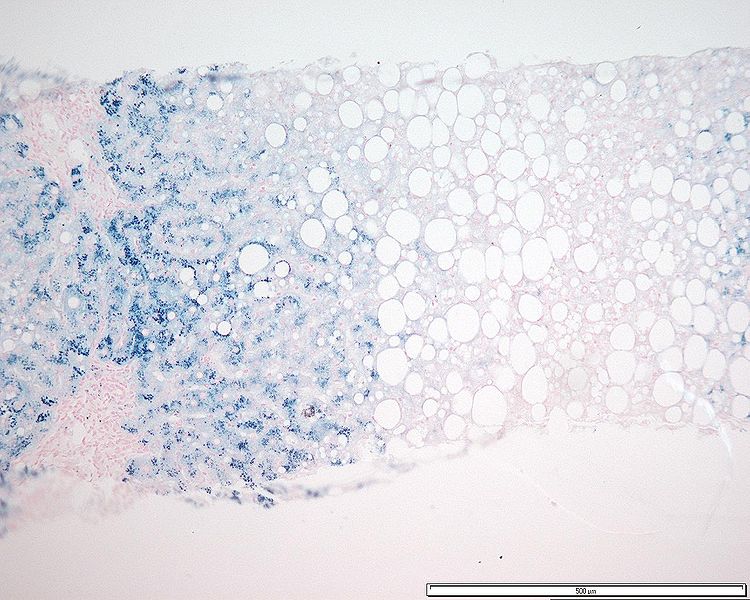
Overview Definition Hereditary hemochromatosis (HH) is: Etiology Iron overload It is important to note that causes of iron overload may overlap or occur at the same time. Secondary iron overload disorders (acquired): Epidemiology Pathophysiology Iron homeostasis Iron regulation via hepcidin Certain conditions require a decrease or increase in iron absorption and circulating iron, a pathway […]
Acute Pancreatitis
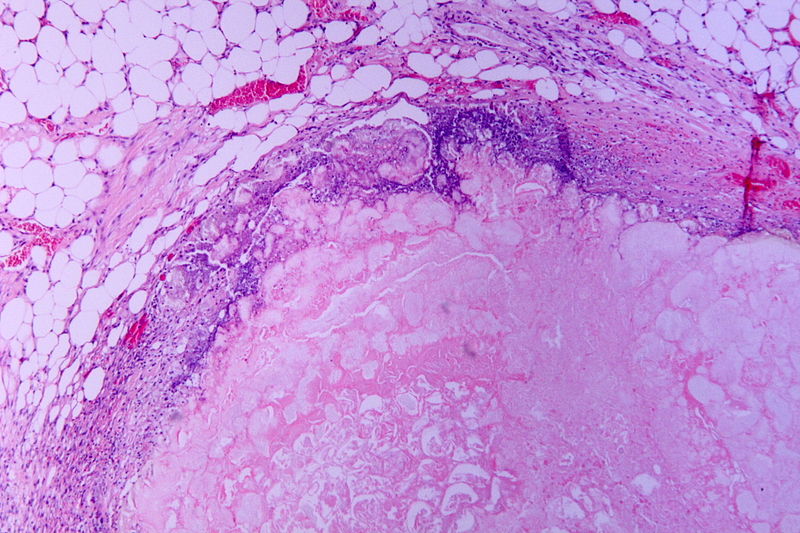
Epidemiology and Etiology Epidemiology Etiology Pathophysiology Normal pancreatic function Acute pancreatitis pathogenesis Clinical Presentation Symptoms Physical examination Diagnosis Diagnostic criteria The diagnosis of acute pancreatitis requires at least 2 of the following: Laboratory evaluation Imaging Imaging may not be required if the 1st 2 diagnostic criteria are met, but can be used for evaluating the […]
Gastritis
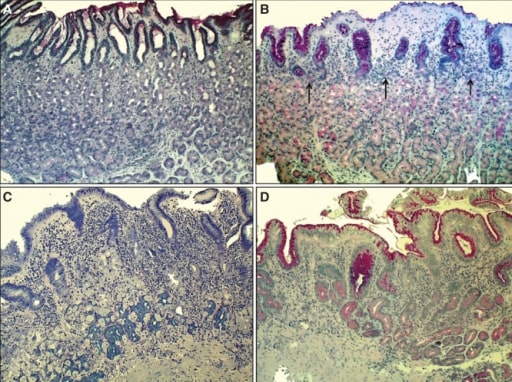
Overview Definition Gastritis is the inflammation of gastric mucosa associated with mucosal injury. Epidemiology Etiology Gastritis is usually due to an infection or an immune-mediated process. Pathophysiology H. pylori–associated gastritis Autoimmune metaplastic atrophic gastritis (AMAG) Gastropathy Clinical Presentation and Diagnosis Clinical presentation Diagnostic studies Specific tests for H. pylori Management and Complications Management Complications Differential […]
Acute Cholangitis
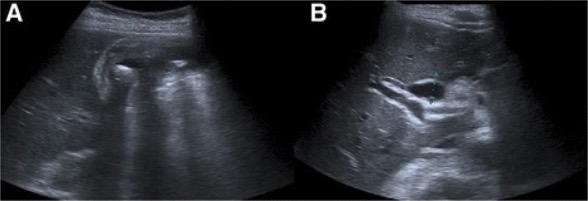
Overview Epidemiology Etiology Mnemonic: Bacteria responsible for cholangitis—KEEPS: Pathophysiology Clinical Presentation Diagnosis Laboratory tests Imaging Note: If the patient is hemodynamically unstable and has clinical evidence of acute cholangitis, this imaging workup will be skipped. The patient should proceed directly to biliary decompression. Management Complications and Prognosis Complications Prognosis Differential Diagnosis The following table outlines […]
Gastroesophageal Reflux Disease (GERD)
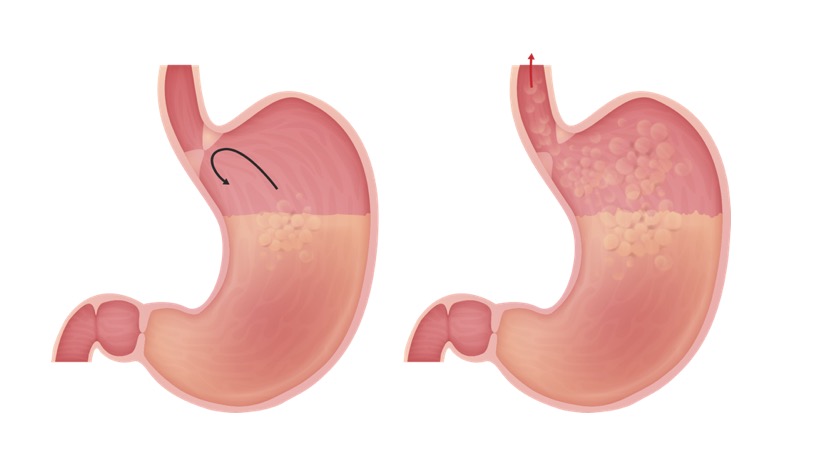
Epidemiology and Etiology Definition Gastroesophageal reflux disease (GERD) is the passage of gastric contents into the esophagus that leads to symptoms or complications. Epidemiology Etiology Hiatal hernia Pathophysiology and Clinical Presentation Physiology Pathophysiology Factors leading to increased exposure of esophageal mucosa to gastric acid/contents: Clinical presentation Diagnosis Clinical diagnosis Ambulatory pH monitoring Esophagogastroduodenoscopy (EGD) Upper […]